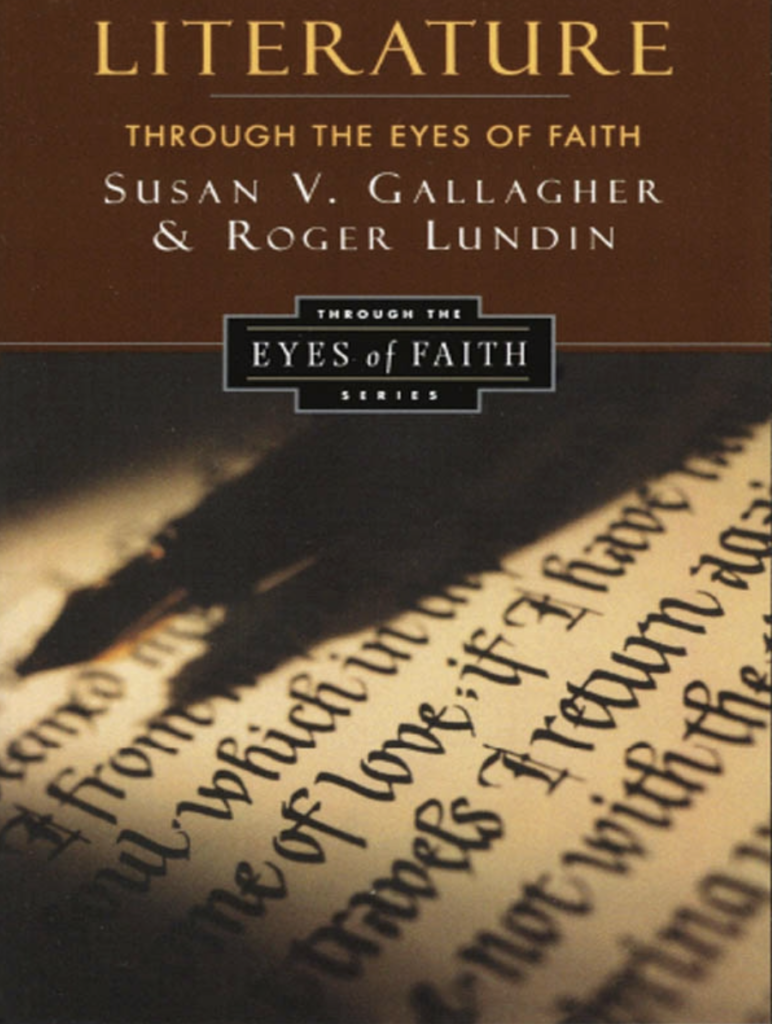I’ve been thinking a lot this week about this Ken Bain tweet.

So what are some fascinating problems I can bring my students before I try to stuff them with facts?
After reading the introduction to Literature Through the Eyes of Faith today, I think I have found one for my introduction to literature course.

Literature Through the Eyes of Faith’s authors, Gallagher and Lundin, contend that Christians have too long supported Romantic views of language and defenses of literature. The great Romantic enemy is science which aims to reduce the natural world to its mechanistic core in order to control it. Christians too were enemies of anyone who would explain away the heavenly wonder of creation. Unfortunately, contend Gallagher and Lundin, the Romantics too eliminated God from consideration by ascribing to the human imagination characteristics belonging only to God. The imagination was powerful, yes, and it was an example of how we were made in God’s image, but human imagination was not redemptive and the natural world it sought diversion from was declared good by the divine creator. An alternative Romantic reading is that the natural world, or environment, must be remade by the human imagination, swallowed whole through our progressive education. Again, the problem here is that human imagination is essentially salvific apart from the redeeming work of Christ, the Logos.
So here’s the problem I would present my students with: why would someone write a love song?
Of course, the stereotypical scientist would be skeptical of the enterprise. Love is at its core reducible to hormonal urges that are evolutionarily predetermined. At best, the song is a frivolous whip cream on a neuron sundae. At worst, it’s deceptive, a ploy that preys on biological urges to help a selfish person get laid.
The Romantic might interject that the song does one of two things. It either gives an ideal of human connection to distract us from the cold, disconnected world with its text messages and pornography. It provides a necessary fantasy to combat the scientific view of sex. On the other hand, it demonstrates human creativity. Yes, hormonal urges are at the back of human sexuality, but isn’t it amazing that humans can sublimate those urges in order to write something as gorgeous as “Night and Day” or “I Will”?
What would the Christian response to this problem? It might be worth reminding students that the Bible features the Song of Songs, as explicit a declaration of intimate lovemaking as we could ever hope to read.
In any case, we would leave the discussion with a more complex understanding of what is at stake when someone decides to create verbal art, to put imagination to use in the articulation of authentic human emotions. It might also begin to point students to a God that is love and whose love was most manifest in two acts: creation and sacrifice.
